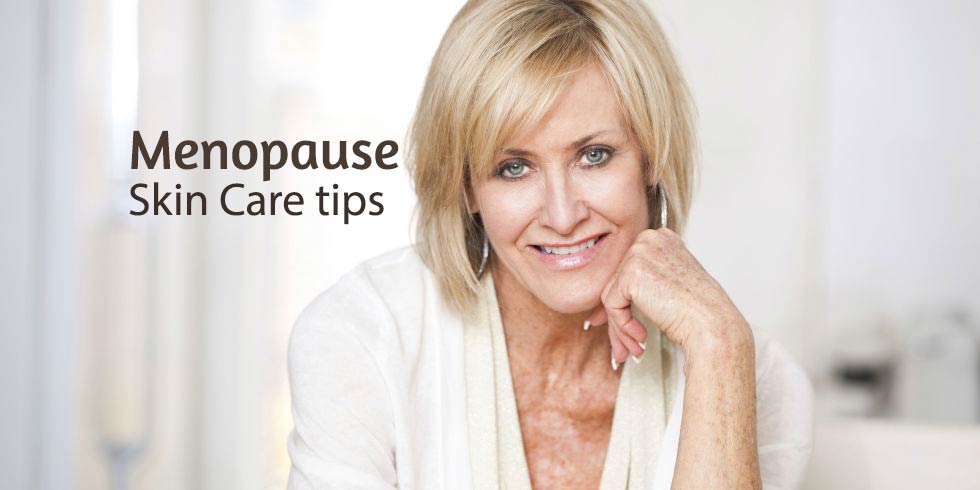How to take care of your skin during menopause ?
Skin changes are primarily associated with aging, for both men and women. As people grow old, the skin cells find it difficult to perform normal duties, resulting in thinning of the skin due to reduced collagen and elastin production, and the skin hair become grayish. The skin at this point starts becoming dull and dry. Body parts under direct exposure to sunlight also tend to deteriorate more. In this regard, wrinkles become characteristic of the face as a result of cumulative damage from continued exposure to sunlight. Environmental factors like wind and extreme temperatures also take a toll order on the skin, in addition to pollutants and lifestyle choices like smoking.
But even then, most women easily notice major skin and hair changes from the transition period to menopause. Besides dry and thin skin, menopausal women also complain of sagging and itchy skin. The itchy skin (a condition medically described as pruritus) can easily interfere with sleep patterns and bring about general discomfort. About itchy skin is paresthesia, a condition characterized by numbness and touch sensations. The skin may become red or irritating, and small bumps may be seen on the surface of the skin.
Estrogen is almost synonymous with women – right from puberty the maturation of a girl is largely stimulated by estrogen. The powerhouse hormone also strengthens the bones of a woman and is responsible for the formation of collagen and oils that keep the skin smooth. Changes in the skin are triggered by dwindling estrogen levels during menopause, in addition to long-term exposure to the environmental elements discussed above. Given that the skin has estrogen receptors decreasing levels of estrogen in the body translate to a disconnection in communication and reduced ability for the body to retain moisture. Besides the face, skin changes may also be noted on the chest, around the genitals, the legs, the back and the elbows.
So, is there anything a woman can do to care for her skin during menopause? Absolutely yes! You do not have to lose hope of having fine lines under eyes again. From lifestyle changes to medication, you can reclaim the beauty of your skin and relive your glorious days.
Improve on your water intake
Dry skin and other related skin problems can easily be addressed by increasing the amount of water you take on a daily basis, in addition to the regularly recommended 8 glasses per day. The idea here is to keep the skin hydrated from the inside. While some people may prefer bottled mineral water, by all means see to it that your intake is both regular and sufficient.
Watch on your diet
Food choices have a direct bearing on the nature of your skin. To aid in the production of oil barrier for your skin, and to keep the skin hydrated, essential omega 3 fatty acids would be very helpful. Foods in this category include fortified eggs, sardines, soy, salmon, and flax seed, walnuts, algae oils and Vitamin B in right amounts.
Stay away from hot showers and irritating soaps
By all means, you would do good to keep off from hot showers because it’s not only harsh to your skin but also an agent of drying. If for some medical reasons you cannot take a cold shower, you should, therefore, keep it warm and shorter. And while at it, the bathing soaps should be gentle. Remember, your skin is both dry and itchy – irritating soaps may trigger the skin and the touch sensation, spoiling a shower that ought to be refreshing your body and skin.
Moisturize soon after showering
One of the major skin functions is the retention of water in the skin as well as in the body, a function that is gradually lost with dry menopausal skin. Opting for petroleum jelly, body lotions, and mineral oils will excellently go a long way in mimicking the natural functions of the skin oils, yet these skin moisturizers are not expensive and ordinarily do not need a prescription.
Use sun protection
While the sun is a gift of nature in the provision of vitamin D to the body, excessive exposure does injustice to your skin, especially to the face, arms, neck, and legs. To avoid this substantial damage by the UV rays, use sun protection (sunscreen) on a regular basis.
Beware of other triggers
to aid the management of itchy skin, triggers like cigarettes and poor sleeping habits should be avoided at all costs, while avoiding or keeping stress triggers at the minimum.
Conclusion
The journey towards caring for your skin during menopause need not necessarily be tedious, thanks to options like lifecell reviews. Beware for every skin product you might consider, there are possible benefits and possible drawbacks. Take your time to consult with your doctor -to be sure you are on the right track. The journey towards reclaiming the beauty of your skin and restoring your youthfulness by fighting off the wrinkles is a worthwhile one – be of good cheer as you rebuild your confidence and self-image through the transition.
Reference:
- https://www.thebeautyinsiders.com/category/menopause
- http://www.theayurveda.org/health-tips/beauty-tips/menopause-skincare-tips-for-younger-looking-skin/
Author Bio:
Sophie Addison is a popular blogger and writer on beauty related tips and articles. She is very passionate about health and beauty. She has posted articles on skin care, tips for using eyelashes, weight loss and celebrity beauty news. She loves reading and researching about the latest lifestyle news. Apart from work she likes gardening and listening music. You can also contact her on Facebook, and Pinterest.













